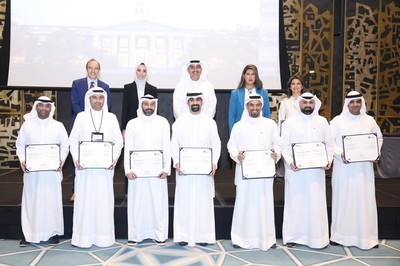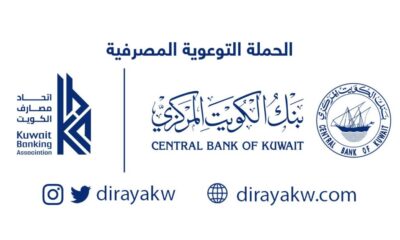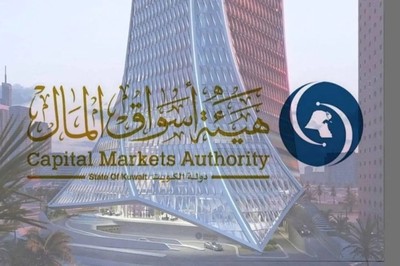KUWAIT CITY, Apr 22: The National Bank of Kuwait celebrated the graduation of its trainees from the 16th iteration of the Harvard Business School program (HBS) “Executives Leadership Development” as part of “Kafaa” initiative by the Central Bank of Kuwait (CBK) in collaboration with the Kuwait Institute of Banking Studies (IBS).
This iteration of the program witnessed a big participation from NBK with 8 different department heads.
The ceremony was attended by representatives from CBK, local banks, participating companies from Kuwait and outside, as well as IBS and the graduates.
This year’s Executive Leadership Development program is titled “Strategic Leadership in the Age of Financial Sustainability” aimed at developing executive leaders in the financial and banking sector.
The program focused on highlighting concepts such as anticipating and responding quickly and electively to strategic opportunities and threats in financial markets, as well as better understanding and addressing the challenges faced today by senior financial executives.
Running for 6 days, the program explored using new technologies and competing with fin tech disruptors and understanding the risks and appropriate responses to cyber threats, in addition to managing and leading digital innovation and understanding and managing investor concerns around environmental, social, and institutional governance and sustainability.
Moreover, the program shed light on leader development through experiences, delved into disruptive leadership techniques, and highlighted the concept of leading and building a culture of innovation that enables transformation.
It should be noted that this program is held annually in alternating GCC countries with the objective of developing executive leadership in GCC banks and financial institutions as per the needs of the banking and financial sectors in the backdrop of a changing business landscape.
The program consisted of interactive lectures, simulations, and real-life case studies from distinguished Fintech experts at Harvard Business School aimed at enabling leaders to explore different visions for execution, gain the tools necessary for successful leadership, focus on the increasing shift towards global environmental sustainability and new technologies, as well as the way of achieving a successful digital transformation. Moreover, the lectures explored the influence of artificial intelligence on teamwork, team leadership, enhancing communication and leadership under stress, and promoting talent diversity.
On this occasion, Mr. Emad Al Ablani Group Chief Human Resources Officer said: “NBK’s participation in this executive development program in collaboration with Harvard Business School coms in line with its endeavors to prepare highly qualified banking professionals in all majors, especially in the digital field, which have become part and parcel of banking transactions using the latest cutting-edge technology and AI channels.”
“Our participants in the “Kafaa” initiative reflects our strategy to invest human capital by building qualified national leaders in the banking sector as per the latest and best international standards.”
Al Ablaniadded: “We strongly believe that investing in our employees in one of the main strategic pillars of achieving sustainable growth and guaranteeing the bank’s excellence and leadership. This is why we strive to provide the best training and development programs in collaboration with the biggest world institutions, to ensure building a flexible and dynamic workforce that can face future challenges and changing banking landscape.”
Al Ablanialso stated: “Building a flexible and dynamic workforce requires enabling future leaders and equipping them with the best and latest programs, which is why we make sure to participate in these initiatives and programs that achieve the bank’s aspirations on the long run and enhance sustainable efforts in the field of human resources.”
The National Bank of Kuwait dedicates all its efforts to develop its human resources and elevate as well as aid its employees’ capabilities with the needed experiences and skills, which further enhances its endeavors to build professionals that promote its long-term visions and enhance its sustainability plans.

 Business20 hours ago
Business20 hours ago
 Latest News20 hours ago
Latest News20 hours ago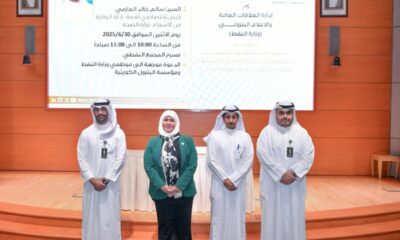
 Latest News15 hours ago
Latest News15 hours ago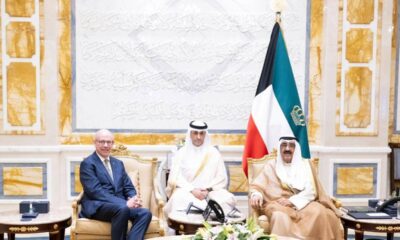
 Latest News23 hours ago
Latest News23 hours ago
 Business22 hours ago
Business22 hours ago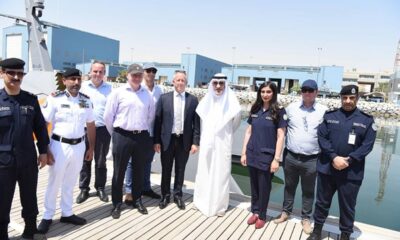
 Latest News21 hours ago
Latest News21 hours ago
 Latest News17 hours ago
Latest News17 hours ago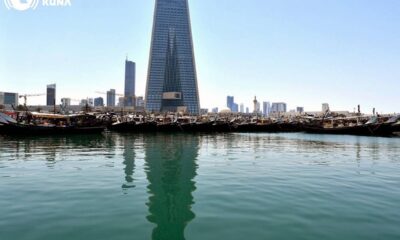
 Latest News16 hours ago
Latest News16 hours ago
